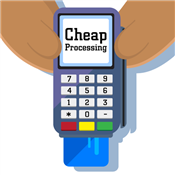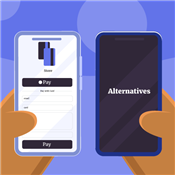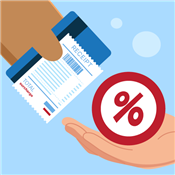Best High Risk Credit Card Processing
Avoid subpar service, even with higher fees! Find the top 5 high-risk merchant account providers for reliable processing.
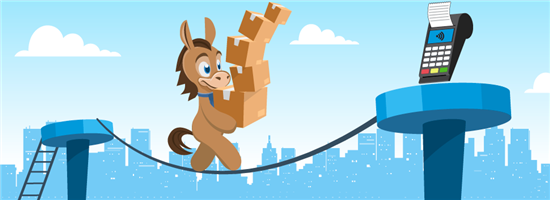 |
High-risk merchant? It may be tough to find a processing provider (and more expensive).
But don't worry.
The 7 reputable merchant account providers in this guide specialize in high-risk processing. You're sure to find a good fit no matter what industry you're in.
The best high-risk merchant account providers are:
- PaymentCloud: Best Overall
- Soar Payments: Best for High-Risk eCommerce Businesses
- Durango: Best for International Businesses
- Host Merchant Services: Best for Interchange-Plus Pricing
- SMB Global: Best for Ultra High-Risk Merchants
- Easy Pay Direct: Best for Scaling High-Risk Businesses
- eMerchant Broker: Best for High Approval Rate
- National Processing: Best Customer Service
- HighRiskPay.com: Best for Merchants with Bad Credit
Read on for everything you need to know about high-risk processing. Plus, find out what businesses are considered high-risk and which providers work with cryptocurrency.
Best High-Risk Merchant Accounts
 |
To choose the best high-risk merchant account providers, we looked for these criteria:
- Specializes in working with a variety of high-risk businesses
- Great customer service with real account managers
- Free no-obligation quote
- Wide range of services
PaymentCloud
Best overall for high-risk businesses
|
|
Founded in 2015 in Southern California, PaymentCloud has developed a strong reputation for specializing in high-risk merchants.
Whether you're in a risky industry or previously had a failed business, they have experienced staff who know how to work with your unique needs. You get a dedicated account agent who will stay with you the entire life of your account.
PaymentCloud uses their 10+ banking relationships to help you find the right fit and the best rates.
They focus on fraud and chargeback prevention to help you stop chargebacks before they occur. Their dispute detection and prevention software can be integrated into your merchant account.
Why we like it:
Payment Cloud accepts a wide variety of business types. They even pride themselves of a 98% approval rate.
Some of the industries they work with include CBD and hemp, cigars and tobacco, guns and ammunition, adult, and nutra and supplements.[1]
What's more, you get your first terminal for free. Mobile terminals will be suited for on-the-go service businesses. But a payment gateway and virtual terminal are also available.
High Risk? No Problem
- Competitive Options for Payment Processing at All Risk Levels
- Fast Funding
- No Setup/Hidden Fees
- No Minimum Credit Score
- All Industries Accepted
Soar Payments
Best for: High-risk eCommerce businesses
|
|
Soar Payments specializes in high-risk merchant accounts for online businesses. It stands by three guarantees for all clients:
- You will get an instant quote when you submit your application online.
- You will get the minimum industry pricing.
- You will always speak to a real person based in Houston, TX.
Some business types that Soar Payments specialize in are: financial and legal services, health & beauty, fantasy sports, firearms, tobacco & vape, travel, SEO/SEM, and SaaS.[3]
Soar will also accept business owners with low personal credit. But you may not be approved if your credit score is less than 500.
After 3-6 months of stable processing history, Soar may reevaluate your merchant account and see if you qualify for reduced processing rates or account fees.[4] To qualify, it's important that you maintain a low chargeback ratio.
Why we like it:
It's easy to apply with Soar Payments. You can get it done in just 5 minutes.
When approved, you'll be able to take retail, mobile, and eCommerce payments. There are traditional credit card terminals, wireless terminals, virtual terminals, and POS systems available.
For a more cohesive workflow, you can integrate other software you already use. It could be QuickBooks, Salesforce, Big Commerce, Shopify, WordPress, etc.
Durango
Best for: International businesses
|
|
Founded in 1997, Durango is one of the oldest high-risk merchant account providers. It works with several banks and processors worldwide to help you find the best fit. This makes Durango great if you have international customers or even a business abroad.
Durango specializes in multi-currency merchant accounts. This allows a customer from another country to see prices and make payments in their home currency.
Durango even offers cryptocurrency processing. You can accept digital coins in-store, online, and via invoice. With over 4 million crypto transactions per day, this allows you to tap into an expanded revenue stream.
You get a dedicated account manager who will stay with you over the lifetime of your account. And you will get a direct number to their line, so you can get in touch without jumping through hoops.
Why we like it:
You don't need to worry about your business history with Durango. They can work with you even if you have had a terminated merchant account. Also, they can still consider you even if you were rejected for a different merchant account application.
Do you have a low credit score? Low business and personal credit scores shouldn't be a problem with them. They'll help provide lower rates and place risk management tactics to keep those rates low.
If you're ever required a cash reserve, they'll help plan to reduce that reserve over time.
Host Merchant Services
Best for: Interchange-plus pricing; no termination fees
|
|
Host Merchant Services (HMS) is mostly known as a traditional merchant account provider. But it also supports high-risk businesses that other providers may turn away.
The good thing about Host Merchant Services is that it offers interchange-plus pricing to high-risk merchants (instead of the standard-tiered pricing that most providers offer). This can help keep your processing costs lower. You'll have to talk to HMS to get a personalized interchange-plus quote for your business.
In general, HMS offers:
- No contract or early termination fees
- Locked-in rate for the life of your account
- Most merchants qualify for a free mobile reader or terminal
Host Merchant Services also prides itself on its 24/7 customer service. There are no holds - a live person based in the U.S. will answer your call within 3 rings.
Why we like it:
Typically, it can take up to 5 days to get approved for a high-risk merchant account. But with HMS, you can get approved in just 24 hours.
They specialize in nonprofits, automotive-related businesses, hotels, fitness, medical and veterinarian offices, firearms, and construction. But they can also support other high-risk industries such as debt collection, adult novelties, and life coaching through its partnership with Electronic Merchant Systems.[5]
They offer some of the most competitive rates. And the staff will go above and beyond with your inquiries as they provide top-notch service.
SMB Global
Best for: Adult, CBD, and other ultra-high-risk merchants
|
|
SMB Global is a specialized high-risk merchant account provider. It's one of the few providers that support "ultra-high-risk" industries.
Some examples are gambling, nutraceuticals, coins and precious metals, debt collection, and offshore businesses.[6] These types of businesses are often turned away, even by other high-risk specialists.
SMB Global has over 20 domestic and international banking relationships. This allows them to find the best custom solution for you.
SMB Global is more suited for online risk-high businesses. It offers 2 payment gateways - NMI and Authorize.net. It also has over 175 online shopping cart integrations.
Why we like it:
Their dedicated support team will walk you through your options so you can get the best solution. If you prefer a more flexible solution, however, their developer-friendly APIs can help. You can get full customization and control over how you accept payments.
Also, they have a chargeback prevention suite. This lets you prevent chargebacks and monitor your account in real time. They have an automated chargeback representment that can help you out.
But let's say you offer services or subscriptions. Then you may also choose to accept ACH payments. There's an ACH & Demand Draft solution for that.
Easy Pay Direct
Best for: Scaling high-risk businesses
|
|
Easy Pay Direct offers merchant accounts to businesses in the U.S. and Canada. With over 20 years of experience, you're sure to get a reliable service.
They guarantee the lowest rates. Since they're a one-stop shop, your merchant account and payment gateway you'll use can integrate with a variety of apps. There are over 250 shopping carts to work with such as Shopify, WooCommerce, and Big Commerce.
Whatever your business, you can take credit card payments, ACH transactions, and eChecks. You can also invoice your clients, set up recurring billing, and use online payment forms.
Why we like it:
Easy Pay Direct approves applications within 2-5 days. For faster approval, keep your documents on hand as the underwriting team may request more info.
You can also expect higher ticket processing amounts. And with the possible monthly volume increases, you'll have no problem scaling your business. Not to mention, they can even help you scale your business internationally.
You get chargeback thresholds to help mitigate chargebacks. That way, you'll know where your account stands and avoid account closures with no warning. You can also project refunds to help prevent chargebacks.
eMerchant Broker
Best for: High approval rate
|
|
eMerchant Broker approves 99% of the applications from low and high-risk merchants. And they can get it done in just 24-48 hours. Not to mention, it has an A+ BBB rating so you know it's a trusted brand.
Some of the industries they work with include gambling, gaming, adult entertainment, tech support, travel, and weight loss programs.[7]
The dedicated support team is also available 24/7 for any inquiries you might have.
Why we like it:
You don't need to worry about your credit score. EMB can work with you even if you have poor credit or are just starting to build one. It won't even be a problem if you have no credit card processing history.
Have had a merchant account close due to chargebacks? That also won't matter to them. They even have a chargeback dispute resolution feature so you can keep that from happening again.
You get advanced features such as 3D secure, intelligent transaction routing, and multi-currency conversion. You can also integrate with many apps such as Square, Wix, Shopify, and WooCommerce.
National Processing
Best Customer Service
|
|
National Processing is one of the best credit card processors for small businesses. Apart from traditional merchant accounts, you can also apply for a high-risk merchant account with them.
The processor guarantees to offer the lowest rates. Plus, you'll get access to the tools your high-risk business will need, such as robust chargeback prevention tools, POS systems, e-commerce integrations, accounting tools, and CRMs.
You may even get a free terminal depending on your sales volume and qualifications.
Why we like it:
What's great about National Processing is that you get to have your own dedicated account manager to help you in case you encounter issues. Customer support will be U.S.-based and is available 24/7.
In addition, National Processing can reprogram your POS equipment for free. But you can also opt for one of their offered POS like Lightspeed and Lavu.
HighRiskPay.com
Best for: Merchants with bad credit
|
|
High Risk Pay is one of the more established high-risk merchant account providers, having been in business since 1997. That's 27 years of payment processing!
The merchant account provider has a broad network to help you with your processing needs. Some of what it offers include chargeback and fraud prevention tools, payment gateways, e-commerce, surcharging, mobile, and ACH payment processing.
The processor also received an A+ rating from the BBB. The downside, however, is that it's hard to find client feedback online in spite of the processor's longevity in business.
Why we like it:
High Risk Pay accepts a variety of high-risk businesses, including merchants with poor credit. The processor boasts a 99% approval rate, and claims that you can even get approved in as fast as 24 to 48 hours.
This isn't typical for a high-risk merchant account provider. The underwriting process can usually take a few days to weeks.
In addition, high-risk businesses typically get charged expensive processing fees. But that's not the case with High Risk Pay. You'll be offered fees similar to a traditional merchant account, with rates starting at 1.79%.[9]
What is a High-Risk Merchant Account?
A high-risk merchant account is one that works with businesses with a higher risk of chargebacks, fraud, or failure.
These businesses are often rejected by standard merchant accounts because of the risk to banks. A high-risk merchant account will accept the risk and allow you to process credit cards. But in exchange, the fees are usually higher.
They're also more equipped in dealing with the unique needs of high-risk businesses. This is why it's important to find the right provider that understands your business.
What Makes You a High-Risk Merchant?
You may think high-risk merchants are mostly businesses that sell shady products, but that's not true. High-risk merchants include:
- Industries with a high risk of chargebacks and fraud (over 2%)
- Industries with high rate of failure
- Industries that require a lot of legal regulation
- Subscription businesses with recurring billing
- If you have bad personal credit
- If you previously had a failed business
- If you have large ticket transactions (over $500)
- Very high volume businesses (over $100K per month)
- If you accept foreign currencies
Some common high-risk businesses are: travel companies, auto parts and accessories, health supplements, financial services, and adult entertainment.
See if your business is included in the list below.
- 1-800 chat sites
- Adult Industry
- Airlines and Booking
- Auto Warranties
Auctions - Background Checks
- Bad Credit
- Business Consulting
- Business Opportunities
- CBD & Cannabis Products
- Coins and Collectibles
- Continuity Billing
- Credit Monitoring
- Dating
- Debt Collections
- Fantasy Sports
- Firearms
- Gentleman's Clubs
- Government Grants
- Health and Beauty
- High-Ticket Coaching
- Magazine Sales & Subscriptions
- Male Enhancement
- Membership Organizations
- Multi-Level Marketing
- Nutraceuticals
- Online Gaming
- Pawn Shops
- Pay-Day Lenders
- Skin and Hair Care
- Subscription Boxes
- Tour Operators
- Travel & Vacation Services
- Vape & Cigarettes
- Web Design and SEO
- Weapons (of any kind)
- Background Checks
5 Things to Know About High-Risk Processing
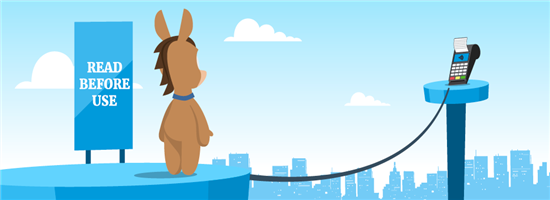 |
If you're considered a high-risk merchant, finding a processing provider can be difficult and pricey.
Here's what to expect when it comes to high-risk processing:
1. Not All Providers Will Work With You
A lot of merchant account providers will not accept high-risk merchants. So, don't waste time applying with the wrong provider.
The best thing to do is to find a company that specializes in high-risk accounts and your unique needs.
2. You Will Have Higher Processing Rates
Your rates will likely be higher than standard rates. The higher rate is to offset the risk of you not paying the chargebacks or your business failing.
You'll need to talk to an agent to get a personalized rate. But in general, a high-risk business can expect processing rates to be 3.5% - 5%, depending on what end of the risk spectrum you are.
Ultra-high-risk industries can even see higher rates (i.e., nutraceuticals, adult industry, vape, e-cig, cannabis, firearms, and subscription boxes).
3. You May Get a Tiered Pricing Plan
Ah, the dreaded tiered pricing. Usually, we would never recommend this pricing structure as it's more expensive and not transparent.
Unfortunately, tiered pricing is common for high-risk merchants. With this structure, all your transactions are categorized as either qualified, mid-qualified, or non-qualified. Each tier has a flat-rate processing fee.
Most transactions will fall under mid-qualified and non-qualified tiers. So, if you're shopping around, it's more important to compare those rates.
It also doesn't hurt to ask if you can get interchange-plus quotes during negotiation. This pricing model will help you save some money.
4. You Will Have Stricter Terms
A lot of merchant account providers now offer month-to-month billing with no contract. But high-risk merchants most likely won't be given that flexibility.
You'll probably have to agree to a long-term contract (the standard is 2-3 years). And there'll be an early termination fee if you cancel before the end date.
You may also get a lower monthly processing volume to start. As you build a trustworthy relationship with your provider, you can get it increased.
5. You Most Likely Need a Reserve
A reserve is a portion of funds set aside to protect the merchant bank. In case you don't pay your chargebacks, funds from the reserve can be used to cover them.
A lot of high-risk merchant accounts require a reserve. You may need to provide a certain amount of money at the beginning of the agreement (an upfront reserve) and/or have a portion of each deposit held back (rolling reserve). Either way, that's a portion of your funds that you can't use.
Now that we've got some of the basics down, you may be feeling intimidated. Don't worry. A good provider will work with you to help your business grow.
Benefits of a High-Risk Merchant Account
With all those downsides above, is a high-risk account really worth it? Here are some good benefits:
- Your account won't be at risk for termination if you have a higher number of chargebacks.
- High-risk merchant accounts place a greater emphasis on fraud prevention and detection, to help you lower chargebacks.
- There are less restrictions for selling internationally or processing large volumes, so you won't be limited in your growth.
- High-risk accounts usually assign you a dedicated account manager. You can work with someone who really understands the unique needs of your business.
Applying As a High-Risk Merchant
High-risk merchants will need to undergo a more rigorous manual underwriting. You will not be instantly approved. It will typically take 2-5 business days to review your business documents and come up with a custom agreement.
For a smooth underwriting process, the best thing is to be prepared. Have ready:
- Proof of business: Business license, articles of incorporation or organization, or DBA registration.
- 3 months of previous processing history: The provider will look at your statements to see your processing volume, chargeback rate, and refund rate. These factors will be used to analyze your risk.
Usually, providers want to see a chargeback ratio of 1% or less. But for high-risk businesses, it's more acceptable to have a chargeback ratio as high as 3%.
What is the usual chargeback ratio range of your business? - 3 months of bank statements: This helps the provider see how good you are at handling your business finances, your average balance, and if there are any red flags on your bank account. For new businesses, you can submit 3 months of personal bank statements instead.
- Voided business check: You'll be asked to provide a voided check of where you want the credit card payments to be deposited into.
- Supporting documents: Providers may want a deeper understanding of how you operate your business. Also, have these ready:
- Business plan
- Billing policy
- Shipping procedures
- Guarantees and warranties
- Refund and exchange policies
- Inventory reports
- Security procedures (especially for online stores)
- Business plan
By preparing these ahead of time, you'll have a smoother application process and be ready to hand over anything else the provider may need.
What to Consider When Choosing a High-Risk Processor
Besides fees and contract terms, here are some things to consider as you're shopping for a high-risk merchant account:
- Alternative payment methods
Consider all the ways you plan on taking payments. You can take in-person, contactless payments, and orders by phone for your physical store. Or accept online payments and use auto-recurring billing feature for your subscription services.You might even prefer to send invoices, accept ACH transfers, or even crypto. The provider should offer the hardware and software for you to take payments however you want.
- Fraud prevention solutions
As a high-risk business, it's super important to prevent and detect fraud so you reduce chargebacks. The service provider should offer tools that help you stop fraud before it happens. - Room for growth
Your provider should be able to meet your changing needs as your business grows. If you have international expansion goals, choose a provider that accepts foreign currencies. - Prompt response time
Technical support should be readily available especially for eCommerce websites. You'll likely be taking payments 24/7 from your online store. It would be stressful if it will take days (or worse, weeks) for issues to get resolved. - Hidden fees
Just because the pricing isn't available on the website means you should be on edge for surprise fees. Ask the merchant service provider for all the fees that your account will encounter during the application process. - High-risk payment gateway
If you're taking online payments, then you'll need a payment gateway. Different payment gateways will have different features. But you'll want to learn about the security features the most like tokenization. - Virtual terminal
Sometimes you might not need a POS hardware to take payments. A virtual terminal can suffice, especially if you take more mail and phone orders. Payment processors usually offer their own virtual terminal.Some people mix up payment gateways with virtual terminals. But the two are actually different. Think of payment gateways as customer-facing (from your website). Virtual terminals, on the other hand, are accessed by your employees on the backend. - Updated hardware and software
Technology gets updated quickly, even when it comes to taking payments. Make sure your payment processor offers up-to-date hardware and software.Some processors even provide open APIs. That way, you can integrate their software with apps you own or work with.
Aside from these considerations, let's talk about your action plan.
How to Choose High-Risk Merchant Credit Card Processing
You don't have to feel the pressure of selecting the right high-risk merchant processor. You can take your time in canvassing and comparing what they offer.
Here's what you have to do:
- Take note of the accepted industries.
Even high-risk merchant processors have specializations. Although they typically work with many types of high-risk industries, you'll want to know if they support yours. You don't want to be wasting time with your application. - Look for 24/7 customer support.
Having great customer service is one of the most important things to consider. You'll want to be able to reach someone (a person, not a bot) when problems arise with payment, with your site, etc. A good way to test out customer service is to inquire as much as you can during the canvassing process. - Compare quotes from different processors.
Don't just take what's offered the first time around. You'll want to get multiple quotes to see the lowest rates you could get.Your contract will most likely be unique to you. That's why high-risk merchant processors don't really post their fees as they offer custom pricing. Take note of the rates and make sure you know every fee.
But load balancing is actually unethical and against card brand rules. You can get in major trouble if authorities find that you're using multiple MIDs.
Can I Use Square for My High-Risk Business?
Square is one of the most popular processors for small businesses. It doesn't require an approval process. You just directly create an account yourself on the website. It also offers simple flat-rate pricing, a free plan, and no long-term contract.
You may think it's the easier and cheaper way to start processing too. But unfortunately, as a high-risk merchant, third-party processing service providers (like Square, Stripe, and PayPal) are not the best option.
You may be able to sign up with no problem. But because you were not evaluated for risk beforehand, you'll be examined more afterwards.
PSPs prohibit most high-risk categories. They tend to hold or freeze your account if they see suspicious activity. And if they see you're selling products that violate their terms, they can even terminate your account with little warning.
Getting your account terminated can place you on the MATCH List (or Terminated Merchant File). That's pretty much like having a DUI while trying to apply for a license. It can make getting approved for any merchant account hard down the road.
Tips to Reduce Chargebacks
Having lots of chargebacks is one of the reasons why merchants get placed into the high-risk category. Not only are chargebacks costly, they make you riskier, and thus incurring higher processing fees.
It's important to reduce and prevent chargebacks before they happen. Here are some tips for chargeback prevention:
- Use an address verification service:
An address verification system (AVS) verifies that the billing address entered matches the address on file on the cardholder account. If they don't match, then the transaction is declined. This is one of the best ways to detect fraud due to stolen credit cards.Plus, if a customer disputes the charge, proving that you had a full AVS match will be strong evidence in your favor for fighting against the chargeback. - Set up your merchant account correctly:
A lot of disputes occur because the customer doesn't recognize the merchant's name on their credit card statement. This is easy to prevent - make sure the billing statement text is set to your store name or website domain. - Sign up for fraud alerts:
Many providers will alert you if they detect a suspicious transaction. If it seems shady to you, hold off on fulfilling the item. The best thing to do is immediately issue a refund before it becomes a dispute.Have a clear return policy:
Your return/exchange policy should be clearly stated on your website and/or receipt. Make sure your customers can reach you easily to settle returns among yourselves. Prompt customer service can go a long way in avoiding disputes. - Train staff:
Believe it or not, employee error is one of the biggest reasons for chargebacks. Give proper training to your staff on how to enter orders properly, identify potential fraud, and use other verification tools.
Frequently Asked Questions
What is a high risk payment gateway?
A high-risk payment gateway is the payment gateway used with your high-risk merchant account. It does the same thing a traditional payment gateway does. But you may get more advanced features like advanced fraud detection tools.
What makes a credit card high risk?
You're considered a high-risk business if your business have greater risks for chargebacks, fraud, or failed business. A high-risk transaction, on the other hand, pertain to card payments that pose greater risks of your business losing money.
How do I get a high risk merchant account?
You need to apply to a high-risk merchant account provider to get a high-risk merchant account. Make sure to ask for quotes and negotiate the fees. Some providers allow you to apply online but be sure to have the requirements ready.
How much does a high risk merchant account cost?
You can expect your processing rate to be around 3.5% to 5%. But this will really depend on your business. High-risk merchant account providers will have to assess your risk to them. You may also encounter other fees, such as monthly fees and reserves.
Bottom Line
If you're labeled a high-risk merchant, don't panic. You may need to jump through some extra hoops, but there are plenty of providers that specialize in high-risk processing.
Be prepared for higher rates, account fees, stricter contract terms, and reserves. But it still doesn't mean you need to get ripped off. The providers on our list have good reputations for dealing with high-risk merchants, so you know you're in good hands.
References
- ^ PaymentCloud. High-Risk Merchant Services, Retrieved 3/18/23
- ^ Dharma Merchant Services. Who does Dharma recommend for High-Risk accounts?, Retrieved 3/18/23
- ^ Soar Payments. What Industries Does Soar Payments Serve?, Retrieved 3/18/23
- ^ Soar Payments. FAQs: Can I Get My Monthly Fees And Rates Reduced?, Retrieved 3/18/23
- ^ Host Merchant Services. High-Risk Merchant Accounts, Retrieved 3/18/23
- ^ SMB Global Payments. High-Risk Merchant Accounts, Retrieved 3/18/23
- ^ eMerchantBroker. What industries does EMB serve?, Retrieved 3/18/23
- ^ Trustpilot. High Risk Pay, Retrieved 02/03/24
- ^ High Risk Pay. High Risk Pay, Retrieved 02/03/24
Write to Anna G at feedback@creditdonkey.com. Follow us on Twitter and Facebook for our latest posts.
Note: This website is made possible through financial relationships with some of the products and services mentioned on this site. We may receive compensation if you shop through links in our content. You do not have to use our links, but you help support CreditDonkey if you do.
Not sure what is right for your business?
|
|
|
|
|
|



